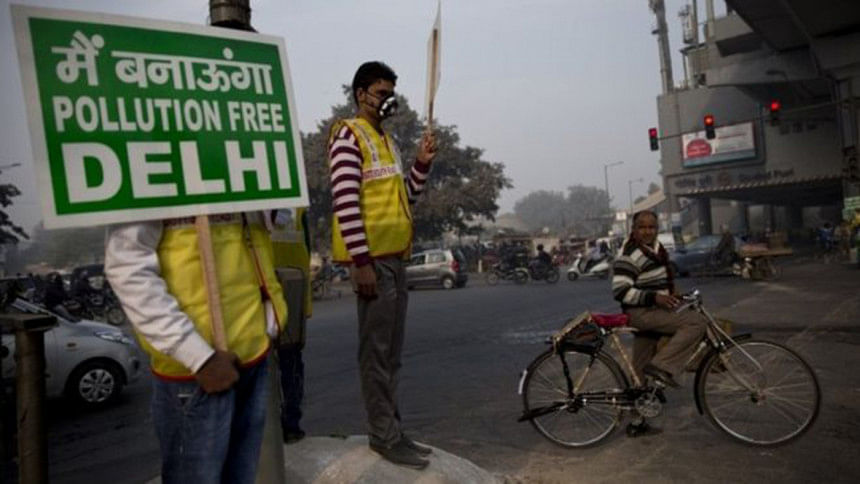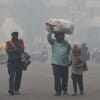Delhi anti-pollution car trial ends

India's capital Delhi is ending a two-week trial that imposed major restrictions on private cars to curb alarming levels of pollution.
Private cars with even and odd number plates were only allowed on alternate days during the experiment, which began on 1 January.
The trial took more than a third of the city's three million private cars off the road, easing congestion.
However, it is not clear whether it has helped to bring down pollution.
Delhi has experienced hazardous levels of pollution this winter.
The local government announced the scheme after a court ordered authorities to tackle pollution levels which stood at more than 10 times the World Health Organisation's safe limits.
'Severe pollution'
Authorities said the trial had resulted in a "more than 50% drop in air pollution primarily caused by vehicular traffic".
The government will hold a review meeting on Monday to debate whether the measures can be enforced in a second phase.
But the state-run System of Air Quality Weather Forecasting and Research showed levels of PM 2.5 particulates -the most hazardous to health - hovering between "very poor" and "severe" between 1-15 January and well above the World Health Organisation's safe limit.
Environmentalists attributed the continuing pollution to low winds and a fall in daytime temperatures.
Correspondents say most drivers followed the restrictions and viewed the trial drive favourably.
"Commuting wasn't as difficult as I thought it would be," marketing executive Akshath Matharu, who took the metro to work every other day, told the AFP news agency.
"Look at the roads, they're so thinly populated. Who could have imagined free-flowing traffic in Delhi?"
Emergency vehicles like ambulances, police cars, fire engines and taxis were exempt from the campaign, and single women were also allowed to drive their cars every day.
The government hired private buses to provide shuttle services. Schools were shut during the trial so their buses could also be used as public transport.
Traffic policemen and several thousand volunteers checked cars at intersections and violators were fined 2,000 rupees ($30; £20) and asked to return.
Environmental activists welcomed the decision, saying the situation is so grim that urgent drastic steps are needed.
New car sales are soaring in India, with 1,400 extra cars taking to the capital's streets every day.

 For all latest news, follow The Daily Star's Google News channel.
For all latest news, follow The Daily Star's Google News channel. 








Comments